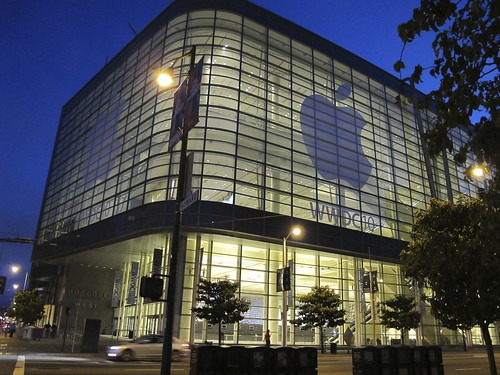Tomorrow marks yet another Apple WWDC. Another day surrounded by the anticipation of a new iPhone. I expect this year is more than a landmark hardware launch, though. This will likely be the year Apple makes a serious attempt at the cloud, an area of the market where Apple is starting to fall seriously behind Google and the Android OS.
First off, the new iPhone is a big deal, not just for us but for Apple as well. The phone leak was so big to Apple, in fact, that it refused to invite Gizmodo to the event in light of the investigation. The newest iteration of the iPhone will be the most advanced phone to market. Though we don’t know specifics, it looks as though the phone will support video conferencing, capture HD video, offer a faster processor, more memory, and of course, iPhone OS 4.
It’s OS 4 that will help Apple catch up to Android. The latest Android updates include support for streaming music from your desktop to your phone. It also allows you to push websites, applications, and maps and directions straight to your phone. Apple and the iPhone are way behind in cloud support. The best you have there is MobileMe, which requires a subscription and really only allows you to find your phone if you lose it. Apple’s Lala acquisition could mean good things here.
The one thing you shouldn’t expect tomorrow is a Verizon iPhone. Though we’ve heard rumors since the iPhone launched, it’s unlikely we’ll see anything this year, or even next. I was wholly convinced that we’d get a Verizon phone around the time my 3GS contract expired but recent Verizon comments have made it clear we won’t see one soon.
On the whole, tomorrow is Apple’s chance to position itself in the market. When the 3GS launched it was clearly the best phone on the market. Things aren’t so clear anymore, and the Android devices coming in the near future hold a lot of advantages for tech-savvy buyers. It’s going to take a lot for Apple to outperform the latest version of Android. We’ll see if they have it when Jobs takes the stage for the keynote at 10 PST tomorrow.
Photo Credit: Adam Jackson / Flickr





